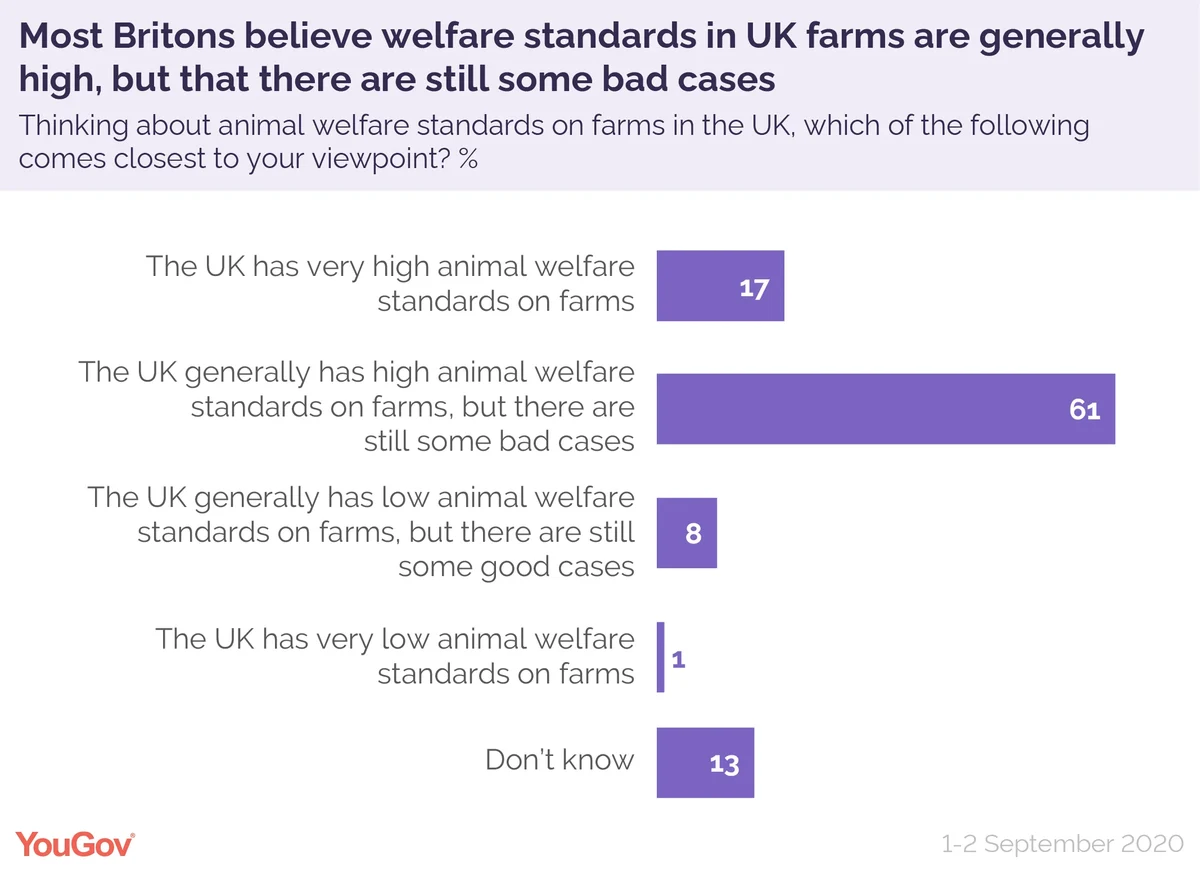Analyzing Reform UK's Stance On Farming And Agricultural Policy

Table of Contents
Reform UK's Vision for British Agriculture
Reform UK's overall agricultural vision centers on a free-market approach, advocating for deregulation and reduced government intervention. They believe that a less regulated market will foster innovation, efficiency, and ultimately, benefit both farmers and consumers.
- Stated Goals: Reform UK aims to increase agricultural productivity, enhance food security, and promote sustainable farming practices, albeit within a framework of reduced governmental control. Their vision emphasizes a return to a more market-driven agricultural system.
- Key Policy Documents: While a detailed, comprehensive agricultural manifesto might be lacking, their pronouncements on Brexit and free trade heavily inform their implicit agricultural policy. Statements on reducing bureaucracy and promoting domestic competition are central to understanding their approach.
- Comparison with Other Parties: Compared to parties advocating for extensive government intervention and subsidies, Reform UK’s approach represents a stark contrast, prioritizing market forces over direct government support.
Their vision emphasizes empowering farmers to make their own decisions, unburdened by excessive regulations. They argue that this approach will lead to greater innovation and efficiency within the sector, ultimately benefiting both farmers and consumers. They haven't explicitly set numerical targets for productivity increases, but their focus on deregulation suggests they expect significant gains through increased competition and entrepreneurial spirit within the sector.
Impact on Subsidies and Support for Farmers
Proposed Changes to the Current Subsidy System
Reform UK's position on agricultural subsidies is a key element of their Reform UK farming policy. They are likely to advocate for a significant reduction or even complete phasing out of the current system of direct payments to farmers. This departure from the existing system would necessitate a fundamental shift in the relationship between government and the agricultural sector.
- Direct Payments: The party likely envisions a move away from direct payments, arguing that they distort the market and hinder efficiency.
- Environmental Schemes: Any environmental conditions attached to subsidies would likely be minimized or eliminated under their proposed system. They might argue that market forces can drive environmental stewardship more effectively than government mandates.
- Impact on Farm Types: Smaller farms, heavily reliant on current subsidies, could be disproportionately affected by the proposed changes, potentially leading to consolidation within the industry.
Alternative Support Mechanisms
Reform UK is expected to promote market-based solutions as an alternative to direct subsidies. This approach relies on a belief in the power of competition and consumer choice to drive improvements within the sector.
- Market-Based Support: They might suggest supporting farmers through measures such as tax breaks, improved access to credit, and investment in research and development.
- Effectiveness and Fairness: The effectiveness and fairness of these market-based mechanisms are subject to debate, and their potential impact on different farm types and sizes would require careful analysis.
- Benefits and Drawbacks: While they might promote efficiency and innovation, market-based mechanisms could lead to increased price volatility and potential hardship for some farmers unable to compete effectively.
Environmental Considerations in Reform UK's Farming Policy
Environmental Protection Measures
Reform UK’s approach to environmental protection within agriculture is likely to differ significantly from other parties. They might argue that market forces and consumer demand are sufficient to drive sustainable farming practices.
- Biodiversity, Water Quality, and Climate Change: Their proposals regarding issues like biodiversity, water quality, and climate change within agriculture remain unclear, but they are unlikely to favor extensive governmental regulation.
- Comparison with Existing Regulations: Their approach would likely deviate significantly from existing environmental regulations and targets, potentially leading to concerns about environmental protection.
- Impact on the Environment: The potential impact of their policies on the environment is a crucial aspect requiring further investigation.
Trade and Agricultural Imports
Reform UK's pro-free trade stance is expected to influence their views on agricultural imports. They would likely favor minimizing trade barriers and embracing open markets.
- Trade Policies: They are likely to advocate for reduced tariffs and fewer restrictions on agricultural imports.
- Impact on Domestic Food Production: Increased competition from cheaper imports could challenge domestic food production, potentially impacting farmers' profitability and viability.
- Food Prices and Consumer Choice: The impact on food prices and consumer choice is complex, with potential benefits from lower prices but also risks to the domestic food supply chain.
Impact on Rural Communities
The potential impact of Reform UK's Reform UK farming policy on rural communities is significant and needs careful consideration. The shift towards a more market-driven system could lead to both opportunities and challenges.
- Employment: Changes in farming practices could affect employment in the agricultural sector and related industries, potentially leading to job losses in some areas.
- Rural Economies: The impact on rural economies and infrastructure would depend on the success of market-based solutions in supporting farmers and related businesses.
- Social Implications: The social implications of potential farm closures, out-migration, and shifts in employment require careful assessment.
Conclusion
This analysis has explored Reform UK's stance on farming and agricultural policy, highlighting key proposals regarding subsidies, environmental protection, and the impact on rural communities. Understanding their vision is critical for farmers, policymakers, and consumers alike. While Reform UK advocates for a free-market approach, a thorough assessment of the potential consequences – both positive and negative – is essential. Further research is needed to fully evaluate the long-term implications of their proposed Reform UK farming policy. We encourage readers to engage with the party’s official documents and engage in informed debate on these crucial issues.

Featured Posts
-
 Doj Antitrust Suit Could Cripple Google Search Says Sundar Pichai
May 03, 2025
Doj Antitrust Suit Could Cripple Google Search Says Sundar Pichai
May 03, 2025 -
 3 Arena Dublin Loyle Carner Concert Details
May 03, 2025
3 Arena Dublin Loyle Carner Concert Details
May 03, 2025 -
 Maltese Waters Incident Freedom Flotilla Coalition Reports Drone Attack
May 03, 2025
Maltese Waters Incident Freedom Flotilla Coalition Reports Drone Attack
May 03, 2025 -
 Conservative Party Chairman Faces Tensions With Reform Uk Following Farage Dispute
May 03, 2025
Conservative Party Chairman Faces Tensions With Reform Uk Following Farage Dispute
May 03, 2025 -
 People Betting On La Wildfires A Disturbing Trend
May 03, 2025
People Betting On La Wildfires A Disturbing Trend
May 03, 2025
